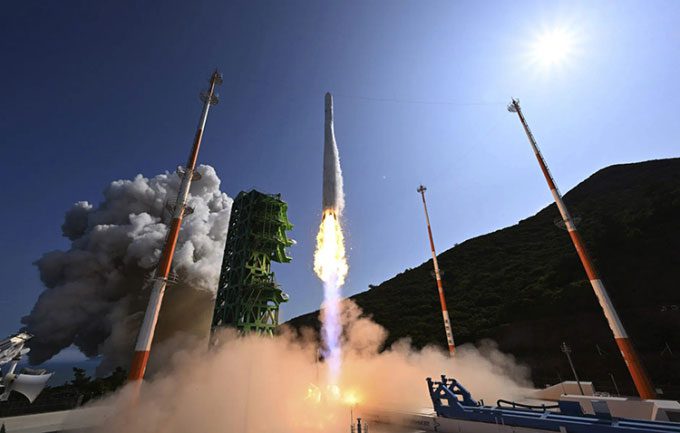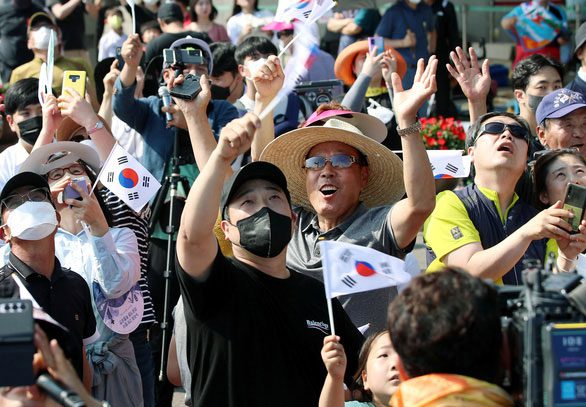South Korea Successfully Tests Space Rocket on June 21. This marks the second attempt by South Korea after the first trial failed to place a satellite into orbit.

South Korea launches the Nuri space rocket from the launch pad at the Naro Space Center in Goheung on June 21.
According to Reuters, the Nuri rocket was launched from the Naro Space Center on South Korea’s southern coast at 4 PM local time on June 21, which is 2 PM on the same day in Vietnam.
South Korean officials reported that a 162.5 kg satellite designed to test the capabilities of Nuri successfully connected with a space station in Antarctica after entering orbit.
This rocket also successfully placed a dummy satellite weighing 1.3 tons and four other small satellites into orbit.
“The universe of South Korea is now larger. Our science and technology have made remarkable progress,” stated Lee Jong Ho, South Korea’s Minister of Science and Technology, at a press conference.

Korean citizens joyfully watching the Nuri space rocket launch from the Naro Space Center in Goheung on June 21 – (Photo: REUTERS)
The KSLV-II Nuri Rocket was designed by the Korea Aerospace Research Institute (KARI). The successful launch of 1.5 tons of satellites into orbit at an altitude of approximately 600 – 800 km from Earth is a significant milestone for South Korea’s ambition to conquer space.
This achievement helps South Korea move closer to its goal of establishing a 6G network, intelligence satellites, and future lunar exploration.
Nuri utilizes only South Korean rocket technology and is the first domestically produced launch vehicle for this nation.
In its first test, Nuri completed the launch sequence but failed to place the satellite into orbit due to the third stage engine running out of fuel earlier than planned. Engineers have since modified Nuri’s helium tank to address this issue.
KARI announced plans for at least four more test launches by 2027. Following the successful launch on June 21, the U.S. Embassy in Seoul tweeted that they look forward to collaborating with South Korea in the field of space.





















































